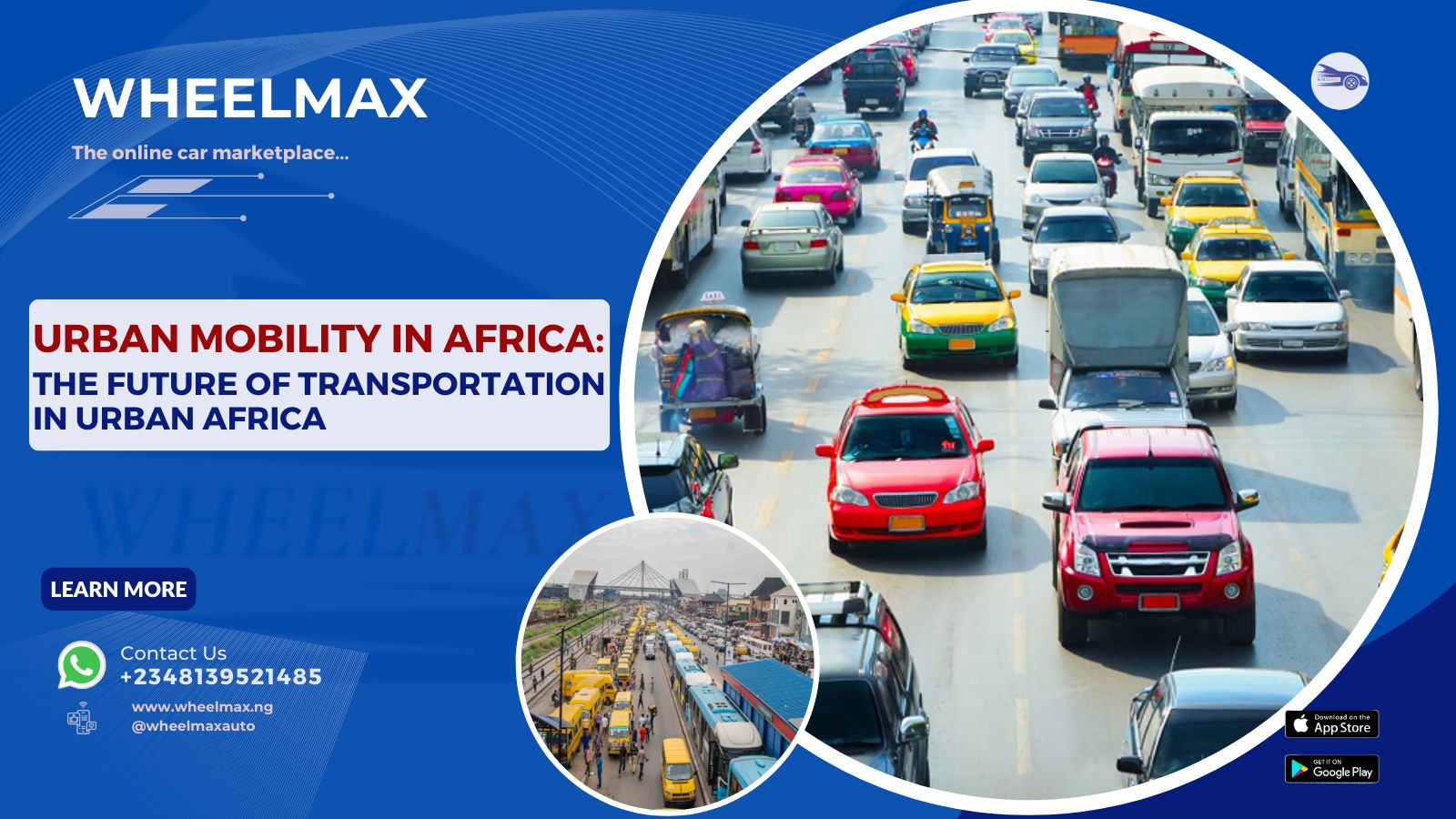The Future of Transportation in Urban Africa
Introduction
Urban Africa is experiencing rapid growth and transformation, and with this comes a critical need for innovative and sustainable transportation solutions. The future of mobility in African cities is set to be dramatically different from what we see today, shaped by technological advancements, economic pressures, and evolving consumer needs. At Wheelmax, we are committed to exploring these trends and contributing to a forward-thinking vision for the continent. This article will examine the emerging trends in public transport, ride-sharing, the future of cars, and the necessary infrastructure developments to support a dynamic and efficient urban transportation ecosystem.
1. Public Transport Solutions: The Backbone of Urban Mobility
Reliable and accessible public transport systems are vital for Africa’s growing cities:
- Bus Rapid Transit (BRT): BRT systems are gaining popularity, offering dedicated bus lanes that help reduce congestion and travel time.
- Rail Networks: Investments in commuter rail and metro systems are crucial for moving large numbers of people efficiently and reducing pressure on road networks.
- Light Rail and Tram Systems: These options can serve as effective medium-capacity solutions in growing urban areas.
- Integration of Systems: Seamless integration of various public transport modes (buses, trains, light rail) is essential for ease of use and accessibility.
- Digital Payment Systems: The adoption of digital payment methods for public transport can make the system more convenient, accountable, and efficient.
2. Ride-Sharing: A Convenient and Flexible Alternative
Ride-sharing platforms are transforming urban transportation in Africa:
- Accessibility and Convenience: Ride-sharing services provide a flexible alternative to traditional taxi services, catering to varied needs and preferences.
- Affordability: Ride-sharing often provides more affordable options compared to traditional transportation options, increasing accessibility.
- Job Creation: These platforms create job opportunities for drivers and other support personnel, contributing to the economy.
- Data-Driven Optimization: Ride-sharing apps use data to optimize routes, reduce waiting times, and enhance overall efficiency.
- Integration with Public Transport: The integration of ride-sharing with public transportation solutions can provide seamless “first mile and last mile” solutions.
3. The Future of Cars: Electrification and Beyond
The cars of the future will need to be more environmentally friendly and technologically advanced:
- Electric Vehicles (EVs): Adoption of EVs is gaining momentum, contributing to cleaner and quieter cities.
- Affordable EVs: The development and availability of affordable EVs is crucial to ensuring broad adoption across the continent.
- Autonomous Driving: Autonomous vehicle technology has the potential to reduce accidents and optimize traffic flow in urban areas.
- Connectivity: Internet-connected cars will offer seamless integration with other services and will enhance the driving experience.
- Shared Ownership Models: Car sharing and subscription services are likely to become more popular, enabling people to access cars without the commitment of full ownership.
4. Infrastructure Development: Supporting a Modern Transportation Network
Investment in infrastructure is critical for future-proofing transportation in Africa:
- Road Networks: Modern, well-maintained road networks are essential for all modes of transport.
- Charging Infrastructure: The expansion of charging infrastructure is necessary to support widespread adoption of EVs.
- Traffic Management Systems: Intelligent traffic management systems can help optimize traffic flow and reduce congestion.
- Data Collection and Analysis: Investment in systems for data collection, analysis, and policy making to manage transportation networks is essential.
- Urban Planning: Integrated urban planning that prioritizes efficient transportation is needed to reduce travel times and improve access to urban amenities.
5. Overcoming Challenges and Embracing Opportunities
The future of transportation in urban Africa requires overcoming challenges:
- Investment: The need for substantial investments in transport infrastructure and technology.
- Policy and Regulation: The development of supportive policies and regulations that foster innovation and sustainability.
- Affordability: Addressing the affordability of modern transportation solutions for the average citizen.
- Capacity Building: The need for skilled professionals to develop, manage and maintain future transport systems.
- Collaboration: The need for collaboration across various stakeholders to implement effective transportation strategies.
Conclusion
The future of transportation in urban Africa is full of opportunities and challenges. By embracing innovative solutions, prioritizing sustainability, and working together, we can create efficient, accessible, and environmentally friendly transportation systems for the rapidly growing cities of the continent. Wheelmax is committed to fostering conversation and exploration of these trends, and we look forward to contributing to this dynamic transformation.
